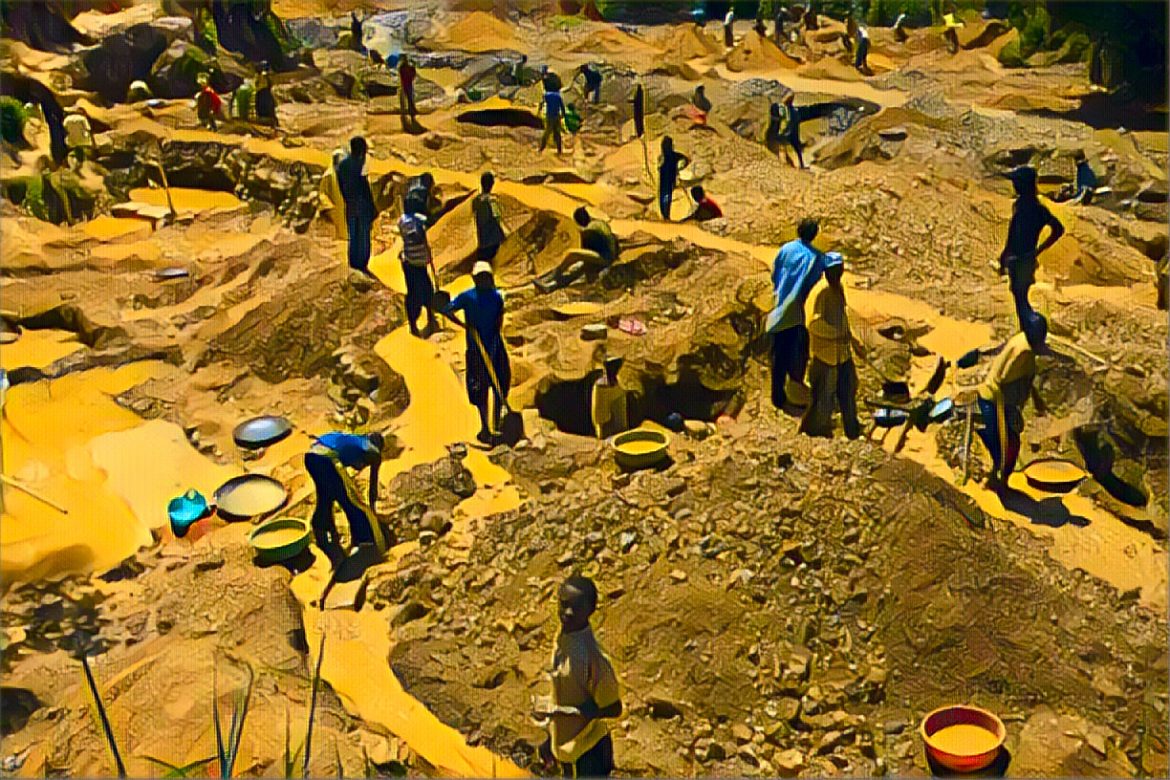Nigerian states, grappling with rising debts and poverty, are watching helplessly as illegal miners exploit over $334.9 billion worth of solid minerals. Despite efforts by President Bola Tinubu’s administration to position solid minerals as the new oil, stakeholders criticize the government’s approach, stating it lacks effective measures.
Nigeria’s total reserve of gemstones is estimated at 1.5 million tonnes, valued at around $310.9 million. Illegal mining in Plateau, Kaduna, and Bauchi states has resulted in $3 billion worth of gemstone losses. Additionally, Nigeria has over 40 million tonnes of talc deposits, potentially worth $12 billion, but only one catalytic plant processes it, with a capacity of 3,000 tonnes yearly.
Iron ore deposits in Kogi, Enugu, and Niger states, along with the Federal Capital Territory, are valued at about $320.8 billion. Similarly, Nigeria’s estimated gold reserves, currently worth $1.8 billion, add to the untapped mineral wealth.
Despite the vast mineral wealth, the Nigerian economy has not seen the benefits. The government estimates the worth of solid minerals at $750 billion and has engaged a German firm, GeoSca, to study the deposits. However, stakeholders believe the projected gains are hindered by illegal mining activities.
The conflict between the Federal Government and states over mining rights further complicates the situation. States like Ebonyi, Benue, Niger, Kebbi, Osun, and Taraba have suspended miners licensed by the Federal Government, leading to a loss of potential revenue. Nigeria’s debt stands at N121.7 trillion, with states owing billions to local and international creditors.
Temitope Adeyemo, Principal Managing Consultant at Geocardinal Engineering Services Limited, insists that states are part of the problem. He argues that states create restrictive laws that hinder mining activities. Adeyemo highlights the need for adherence to the 2007 Mineral and Mining Act, which clearly defines who has the authority to consent to land use for mining.
Adeyemo criticizes the Federal Government’s approach to fighting illegal mining, stating that there is a shortage of qualified personnel to monitor activities. He believes a functional mining sector in Nigeria requires significant investment in data generation across geopolitical zones.
Energy expert Prof. Wunmi Iledare emphasizes the need for a robust fiscal framework to attract investors. He suggests that the Federal Government should criminalize illegal mining and sanction states involved in illegal activities. Iledare also calls for decentralizing mineral development to involve states, aligning it with practices in the oil sector.
Prof. Segun Ajibola, former President of the Chartered Institute of Bankers of Nigeria, highlights the role of traditional rulers and community leaders in illegal mining. He advocates for stringent measures and sanctions against those collaborating with illegal miners. Ajibola stresses the need for comprehensive geological surveys and effective policing of mining activities.
Madaki Ameh, Convener of the Public Interest Advocacy Network, criticizes state governments for their lack of innovation and reliance on federal allocations. He believes the future of Nigeria’s economy lies in solid minerals, agriculture, and a well-managed oil and gas industry. Ameh expresses skepticism about the government’s ability to realize these potentials.
Dauda Garuba, Director of the Centre for Democracy and Development, notes that states have often undermined federal powers by unilaterally stopping mining operations. He calls for expanded stakeholder involvement to develop the solid mineral sector effectively.
Nigerian states need to align with federal policies and collaborate to harness the country’s vast mineral resources. Effective management, adherence to existing laws, and significant investment in infrastructure and data are crucial to transforming the mining sector into a viable economic alternative.
Source: The Guardian


